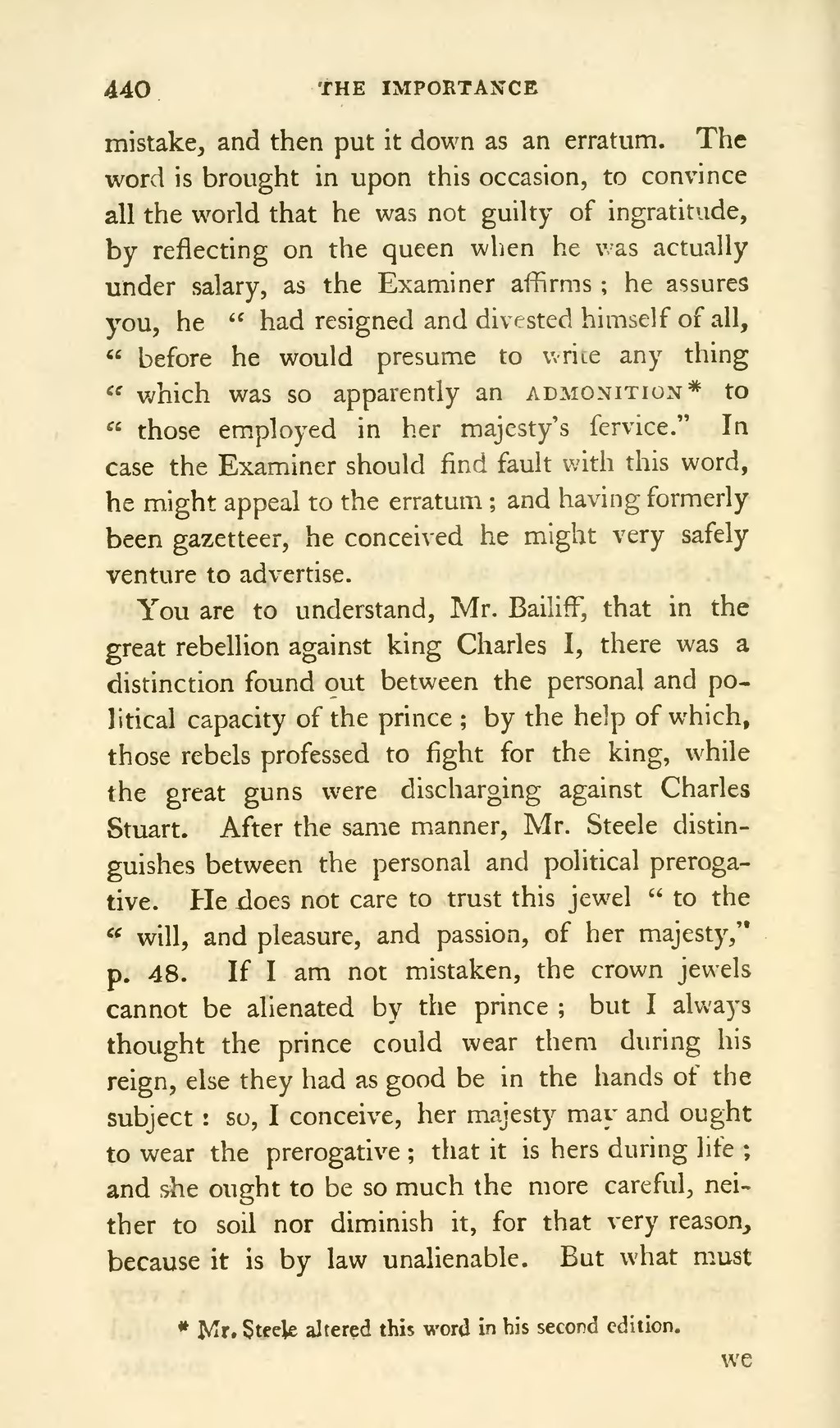mistake, and then put it down as an erratum. The word is brought in upon this occasion, to convince all the world that he was not guilty of ingratitude, by reflecting on the queen when he was actually under salary, as the Examiner affirms; he assures you, he "had resigned and divested himself of all, before he would presume to write any thing which was so apparently an admonition[1] to those employed in her majesty's service." In case the Examiner should find fault with this word, he might appeal to the erratum; and having formerly been gazetteer, he conceived he might very safely venture to advertise.
You are to understand, Mr. Bailiff, that in the great rebellion against king Charles I, there was a distinction found out between the personal and political capacity of the prince; by the help of which, those rebels professed to fight for the king, while the great guns were discharging against Charles Stuart. After the same manner, Mr. Steele distinguishes between the personal and political prerogative. He does not care to trust this jewel "to the will, and pleasure, and passion, of her majesty," p. 48. If I am not mistaken, the crown jewels cannot be alienated by the prince; but I always thought the prince could wear them during his reign, else they had as good be in the hands of the subject: so, I conceive, her majesty may and ought to wear the prerogative; that it is hers during life; and she ought to be so much the more careful, neither to soil nor diminish it, for that very reason, because it is by law unalienable. But what must
- ↑ Mr. Steele altered this word in his second edition.
we
